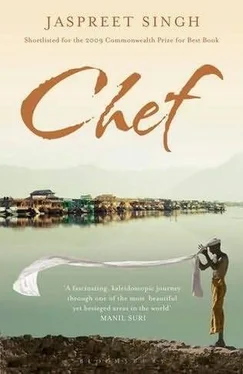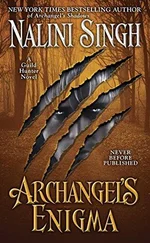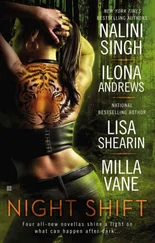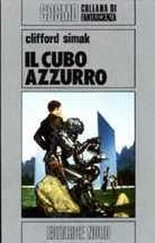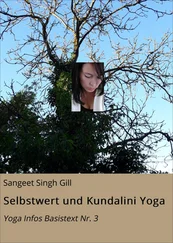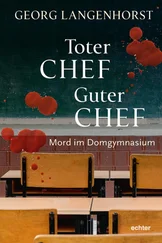There were more insects on the other side and they bit me hard, but what struck me the most was that the image on the screen looked utterly different. Some mysterious power, I felt, had transformed the symmetry on the screen. Our ‘left’ was their ‘right’, and our ‘right’ was their ‘left’. Fundamentally, nothing changed; rain did not become saliva, the coin-sized mirrors on the heroine’s sari did not turn to fire, and yet after that incident never have I been able to look at moving images without hearing sounds of soldiers marching, and never have I been able to walk without thinking about the symmetry or the break in symmetry.
Now, many years later, I think the border between India and Pakistan is a bit like the white film screen that belonged to the open-air cinema. Both sides happen to be watching the same film, sometimes projected from India and sometimes from the Pakistani side, and our left is their right, and our right is their left.
Her bold articles in the paper gave me courage, a lot of courage, and perhaps that is why I finally wrote to her about Irem. After that I did not hear from Rubiya for a long time. She skipped her weekly column in the paper, and this made me worry. But a huge piece appeared three weeks later focusing entirely on Irem. In the article she had changed Irem’s name. She had called her Soofiya. She had found Irem in a prison.
I felt overjoyed and yet I felt very sad. Because I had written my note to Rubiya six years too late.
Rubiya’s article on Irem was very long. But there are fragments which keep coming back to me over and over again. She wrote:
Soofiya found that she was pregnant. She was offered an abortion, which she refused. She gave birth to a baby girl she named Naseem, which means the morning breeze.
Soofiya served out her sentence for ‘entering India illegally’ but no one told her that now she was free to go. The story got out because of an ex-army man’s anonymous letter to an Indian NGO. The letter was forwarded to the World Human Rights Protection Council. Because of the intervention, the Indian authorities sent Soofiya and Naseem on a police-escorted vehicle to the Line of Control. But the Pakistani border guards refused entry. ‘We will allow Soofiya in,’ said the guards. ‘But we will not allow the girl – she, like her “father”, is really an Indian citizen.’
Four more attempts were made. With similar results. In the meantime Naseem has started the prison school in Indian Kashmir. She is a bright kid brimming with curiosity. Soofiya fully approves of her daughter’s education; at times she brags before the prison immates about Naseem’s ability to read and write. The last few days all I have thought about is this… That time is running out… The rough muscular talk between the Hindu fundamentalist leaders of my country, India, and the Pakistani dictator, General Musharraf, has escalated beyond comprehension. Both sides are promising a ‘total’ war. In 1998 when the two countries had tested nuclear weapons in the desert sands the same leaders had promised that atomic weapons were really a deterrence… Last week the two armies marched to the border again, a million men in combat-ready positions. Anti-personnel and anti-tank mines have been planted all along the 1800-mile border. The air smells of the end of the world… During times like these it seems foolhardy to focus on an ordinary woman and her daughter.
And yet. I feel the story of Soofiya and little Naseem is the story of the whole of Kashmir.
What hurts a person into poetry? I ask myself. What made Rubiya a poet? The plane leaves? Snow, or night, or the death of her mother? Or the food she ate? What are the things one must do for the sake of a single poem? Where does poetry come from? As a child she was always hiding from grown-ups. She would make herself small, hiding under the bed or the table, hiding from her father. She sat under a dark table reading books. She played with the black dog. She tried to catch butterflies in the lawn, separating herself from the rest. She refused my meals. The ayah would not allow her to enter the kitchen. Was she becoming a poet then? Did she write her first poem when she first heard about the glacier?
Where are you headed, Papa?
To the glacier.
Who lives there?
Our men, the soldiers.
It is funny, Papa. It must be so easy to slide down.
When exactly does one become a poet?
But, Dad?
Yes, Rubiya.
If the glacier is moving, then how do the two armies draw the line?
What do you mean?
How do India and Pakistan tell where the border is precisely?
When exactly?
Just before her wedding, when I would meet her alone I would ask her all these questions. I would tell her: Rubiya, your poems have made me happy. You will make so many people happy. Millions in our country, and also in the ‘enemy’ country, will be comforted by these words.
‘Are you going to write a poem about your father?’ I would ask her.
‘Chef Kirpal,’ she would respond, ‘poetry is not cooking. Poets do not get to choose. It is the poem that chooses the poet.’
Then you will go to Kashmir
in no hurry
and hear not a single fire
The blessed women
will paint
saffron on your skin
and you will build a house there,
and weave a basket for pomegranates,
and glaze pots in fire
The jagged mountains
will no longer weep
slow muddy tears
or tremble behind
dwarf trees anymore.
Sit. There on encrusted ice
– they will ask you -
Look how it gleams, feel it moving.
Dust the nozzles
of fountains in Shalimar Bagh
in the ruined Nishat Bagh
– they will ask you -
Plant paisley
in one or two cemeteries
where shade bites
the sun. The women
will lead you to damp green
shrines of Noor-u-din. There
you will locate one or two eggs in nests
and mounds of cricket balls
and lost men, too, and
schoolchildren.
Bright smiles
will mark them from the rest, just like
the tattoo on your skin
marked you. In autumn -
you will write long letters
addressed to your old self -
a profusion of dots and dashes…
Old photographs, defeats, loves, recipes
you will move the entire attic
to an unfinished room
and hire
a strong houseboat and help.
Yes, your old forgotten self -
the stranger will paddle you
to the shadows of never
pruned
plane trees. There – in autumn in Kashmir
the two of you would meet. By the roots
and barks and
Technicolor leaves
and millions of dead.
Don’t just sit there. Smell them.
On the second day of my arrival – the eighth of December – when I woke up in the hotel room I read in the paper that just after eleven o’clock the previous night General Kumar had killed himself. He had eaten dinner with Rubiya, and after saying goodnight to her he returned to his room. The servant served tea, and the General took his medication; half an hour later he shot himself. He used the defeated Pakistani general’s pistol from the glass cabinet, and fired only once through his left jaw to do the job.
The paper made no mention of Rubiya’s wedding plans or the postponement of the wedding. The front-page editorial talked about his sickness, the battle with disease, and praised the Hero of Kargil and the Hero of Siachen Glacier for exceptional leadership and vision.
He took over the Governorship of Kashmir, the editorial said, when the State was going through a particularly difficult time.
General Sahib was cremated on the slopes of the hill overlooking the river, not far from the ruins of the Mughal fort. Thin layers of ice on the banks of the river turned orange, reflecting the flames. A three-minute silence was observed before Rubiya offered her father’s body to nothingness. The battles stopped on distant mountains and transistor radios stopped and vehicles stopped on the roads and cooking and eating stopped. People paused, interrupted whatever they were doing.
Читать дальше
Конец ознакомительного отрывка
Купить книгу
